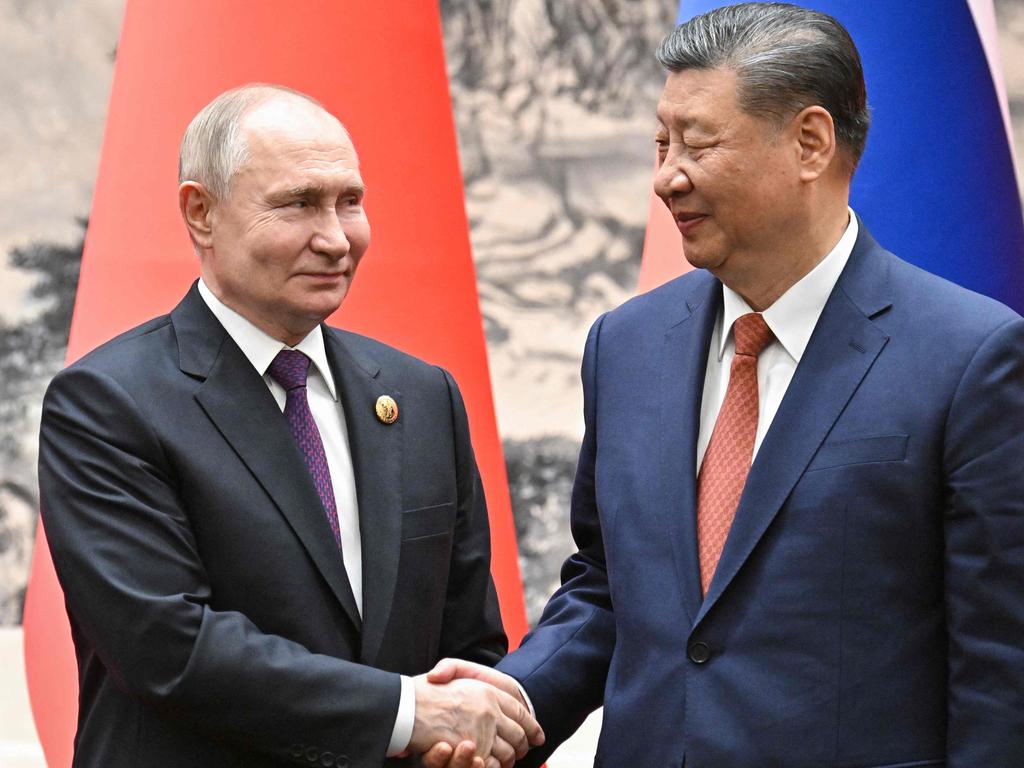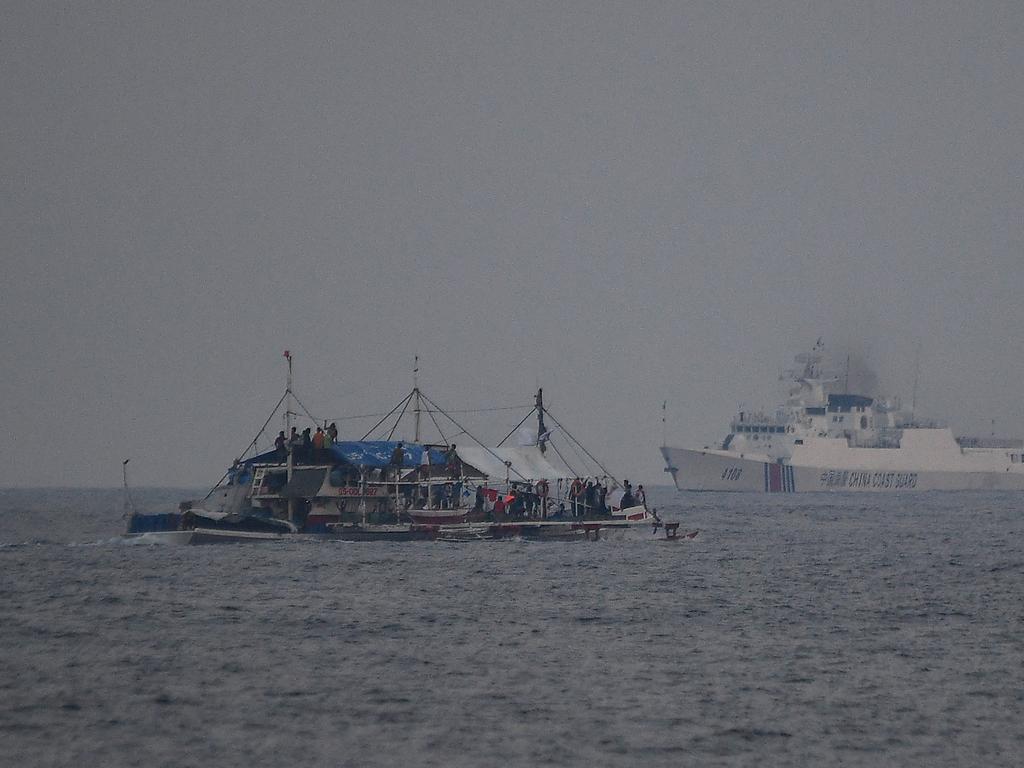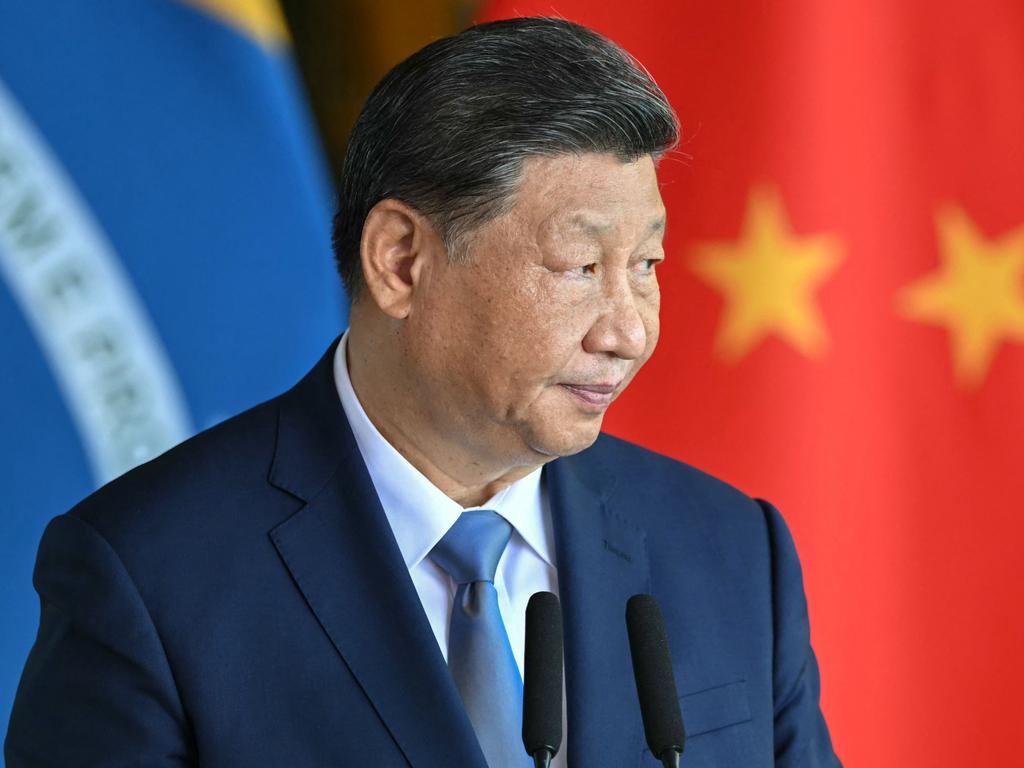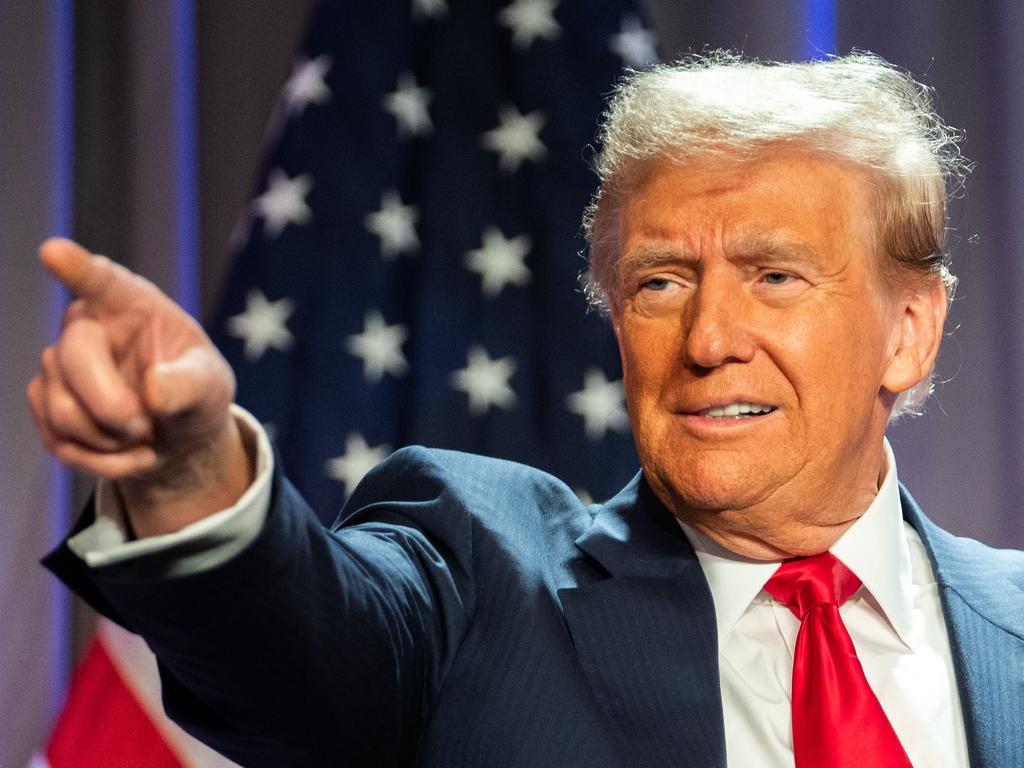China sends task force to Russia to analyse impact of Ukraine war retaliation
Another telling detail of the expanding alliance between the USA’s biggest adversaries has been revealed, as the bells of another conflict ring softly behind multiple ongoing wars.
Another telling detail of the expanding co-operation between the USA’s biggest adversaries has been revealed, mere hours after Donald Trump threatened to impose heavy tariffs on the ominously expanding BRICS alliance.
China has worried security analysts for years now with its overt intentions to bring Taiwan under its umbrella. The alarm bells for a potential war in the South China Sea have been ringing, but even Xi Jinping knows starting another conflict will present a field of new problems for his government and more importantly, China’s already volatile economy.
Details in a report first released by the Wall Street Journal claim the CCP had sent officials to Russia’s central bank and other government agencies to study the effects of Western sanctions following the Ukraine war.
The CCP’s task force is seeking insights into just how heavily it could be impacted if it were to invade Taiwan and provoke a collective Western effort to choke their economy.
The task force has reportedly been producing reports on the economic fallout and China is “very interested” in understanding “practically everything” about the widespread sanctions, according to an anonymous source.
Alexander Gabuev, director of the Carnegie Russia Eurasia Centre, says the West has developed a “toolkit” of sorts to deal with rogue superpowers overextending their reach.
“Russia is really a sandbox on how sanctions work and how to manage them,” he said via the UK Telegraph.
“They know that if there is a Taiwan contingency, the toolkit that will be applied against them will be similar.”
As China seeks to understand the mechanics of Western sanctions, it’s also dealing with rising tensions in Washington as the US prepares for the Trump transition.
Over the weekend, Beijing issued a stern warning of “resolute countermeasures” after the US approved an arms shipment to Taiwan. The two countries’ uneasy relationship continues to fray, with Beijing closely watching Russia’s experience after the West imposed sanctions in the wake of its invasion of Ukraine.

While Russia’s economy initially defied expectations after being hit with sanctions, recent concerns have emerged over the plummeting value of the rouble, forcing the Kremlin to reassure its citizens about the economic impact.
The sanctions and their ripple effects have proven an invaluable lesson for China, which holds the world’s largest foreign-exchange reserves, amounting to a staggering $3.3 trillion.
According to analysts, China’s main lesson from Russia’s situation is preparation — specifically, diversifying its foreign reserves and moving away from dollar-denominated assets, including US Treasury bonds.
The risk of sanctions targeting China in the event of a Taiwan invasion is substantial, with reports indicating that up to $3.7 trillion in Chinese overseas assets could be at stake.
The economic landmine is something China can’t afford to tread on.
Meanwhile, in Taiwan, President Lai Ching-te has called for global solidarity to prevent further escalation. During a visit to the USS Arizona Memorial in Hawaii, Lai stressed the importance of fighting to prevent war.
“Peace is priceless, and war has no winners, we have to fight, fight together to prevent war.”

Xi wants cooperation with Trump
While a taskforce analysing Western economic sanctions on a nation waging a very unpopular war may prompt some unease from security officials, there has also been an olive branch extended between Beijing and the incoming US government.
In his final meeting with outgoing President Joe Biden, Chinese President Xi Jinping sent a bold message to President-elect Donald Trump: China is committed to peace, but will not shy away from a fight if necessary.
At the APEC summit in Lima, Xi stressed the importance of avoiding a “new Cold War” between the US and China, while firmly reinforcing his “four red lines” — issues that are non-negotiable for Beijing.
These include blocking any efforts to challenge the Communist Party, contain China’s economic rise, promote Taiwan’s independence, or encourage democracy within China.
“These are the most important guardrails for China-US relations,” Xi declared.

Xi’s remarks signal China’s strategic preparation for a potentially harder relationship with Trump, who has threatened hefty tariffs and appointed staunch China critics like Marco Rubio and Mike Waltz to key roles.
The Republican’s fluctuating stance on Taiwan, coupled with his growing ties to Elon Musk — whose business interests in China complicate matters — only add to the delicate situation.
Xi also warned the US to stay clear of Taiwan’s affairs and avoid involvement in territorial disputes in the South China Sea.
Trump warns nations against plot to weaken US
President-elect Donald Trump continues steamrollering ahead in his plan to reinstate the US as a superpower, threatening massive consequences against a perceived plot to eviscerate the US dollar.
Mr Trump has built his campaign around the idea of US independence and has regularly questioned the impact of overseas powers on the deterioration of America’s economy. The BRICS alliance, consisting of major superpowers like China, India and Russia, has long been a point of concern for US nationalists.
Russian President Vladimir Putin has particularly pushed for greater co-operation with non-Western neighbours amid heavy sanctions placed on his nation following the outbreak of the Ukraine war. In October, Mr Putin called for a “multipolar world order” at a BRICS summit in Moscow.
Around 20 leaders, including those from China, India, Turkey, and Iran, had gathered to discuss sweeping plans, including the development of a BRICS-led international payment system.

Russia has touted the platform as an attractive alternative to Western-led international organisations like the G7.
“The process of forming a multipolar world order is underway, a dynamic and irreversible process,” Putin said at the official opening of the summit.
The BRICS organisation was “strengthening its authority in international affairs”, Putin said, as he called on its members to consider how they could address the most pressing issues on the global agenda, including “acute regional conflicts”.
But those comments have not sat well with the soon-to-be Trump administration, who have doubled down on their pledge to introduce policies that will primarily strengthen the US.
Mr Trump has now threatened to impose a 100 per cent tariff on the BRICS group nations if any of their schemes undercut the US dollar.
“We require a commitment … that they will neither create a new BRICS Currency, nor back any other Currency to replace the mighty US Dollar or, they will face 100 per cent Tariffs,” Mr Trump wrote on his Truth Social website.
The BRICS group has picked up steam since its inception in 2009 and has now expanded to include countries such as Iran, Egypt and the United Arab Emirates.
But If BRICS countries continue with their plans, Trump warned, they “should expect to say goodbye to selling into the wonderful US Economy,” he wrote.
“They can go find another ‘sucker!’ There is no chance that the BRICS will replace the US Dollar in International Trade, and any Country that tries should wave goodbye to America.”




